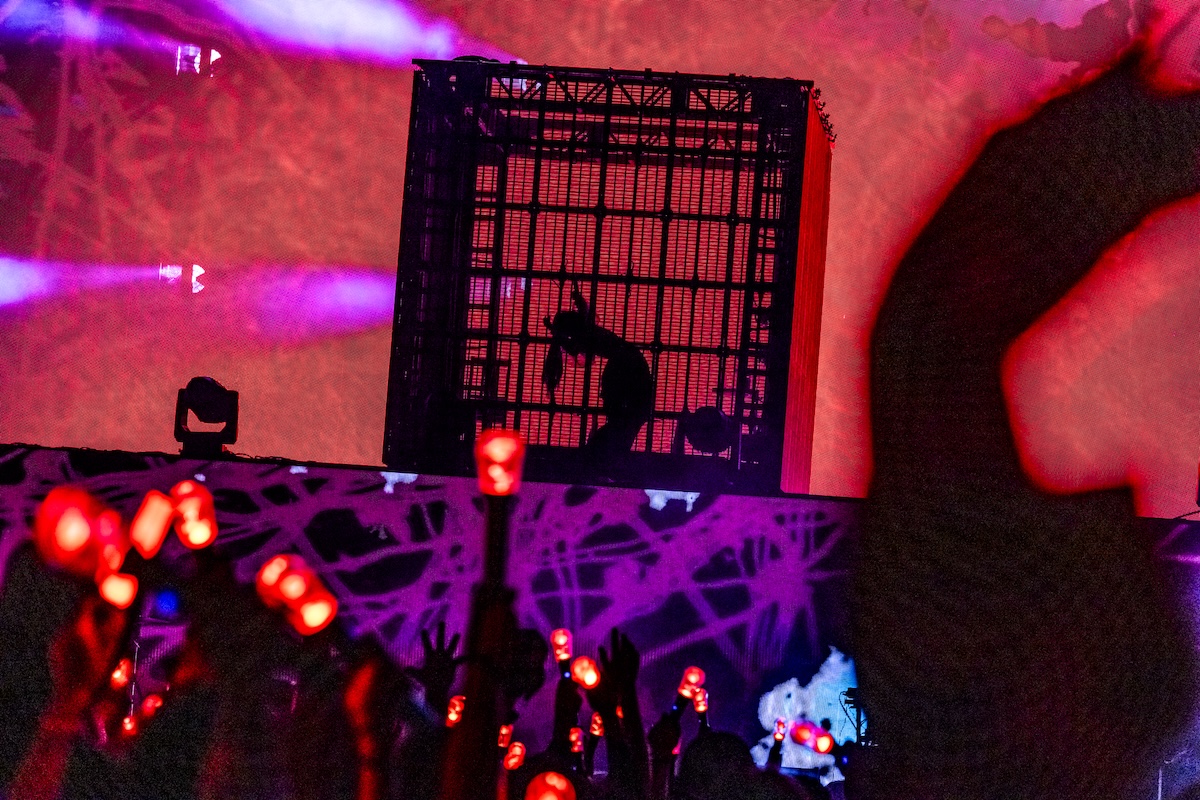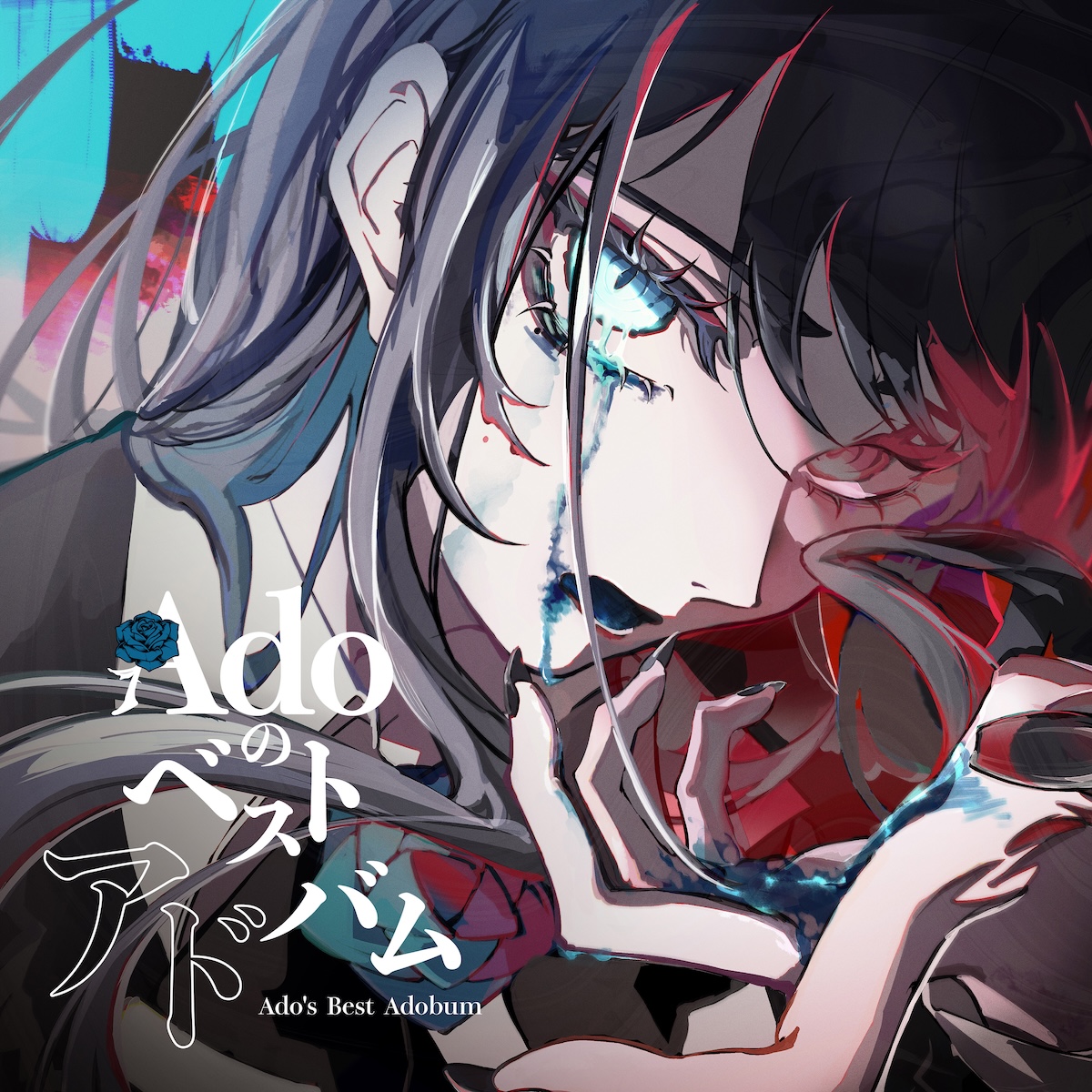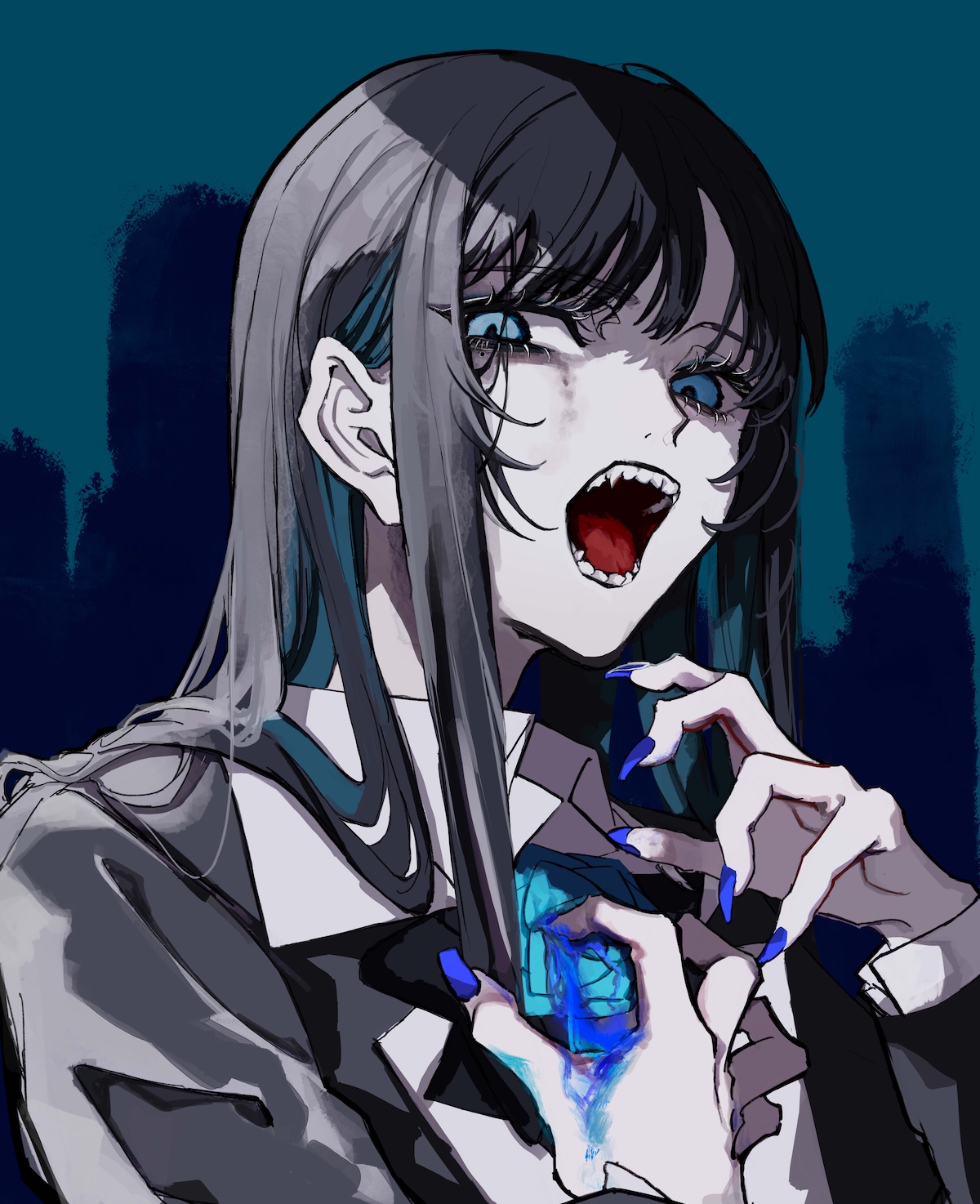Maintaining an air of mystery in our all-access digital world is nothing short of an anomaly. But staying anonymous? That’s a miracle. Yet somehow, Ado has done so for the past five years, ever since debuting with her first viral hit “Usseewa” in 2020. Her newest single “Magic” comes out on Halloween.
What we know about the singer today is nominal. She’s 23 years old, hails from Japan and initially emerged as a utaite singer (uploading cover songs under the guise of an avatar) mixed in with the synthesized Vocaloid scene and has now become the most-streamed Japanese artist in the world. More than 80% of listeners come from outside her homeland, and on Spotify alone, “Usseewa” has logged more than 270 million streams while Ado claims 6.5 million monthly listeners. In 2022, she also found fame as the singing voice of Uta in the anime film One Piece Film: Red.
In February, Elon Musk’s SpaceX launched Ado’s music into the stratosphere on its Falcon 9 rocket as part of an elite Cannes Gala “BandWagon2” project. According to Variety, the project “aims to—eventually—bring music to the lunar surface” and “represents a collaboration between creative teams from the U.K., Japan and the U.S.”
Back Earthside, this August Ado also wrapped up a series of 14 sold-out arena shows in the U.S. where 500,000 people were in attendance, a record for a Japanese artist. Of course, there was a strict no photo/video policy and she performed in full silhouette, from the confines of a cubed cage that provides another protective barrier.
Even so, over time Ado has built a huge following of fans that like to refer to themselves as Adomins who don’t seem to mind they don’t know the proverbial Oz behind the curtains and are just as content to idolize an anime-style character decorated with a trademark blue rose (once impossible to find in nature, it was genetically created for the first time in 2002, Ado’s birth year). It’s reported that even at meet and greets, just Ado’s arm is visible as it reaches out from a hole in a box to shake hands while remaining incognito.
Keeping Ado’s identity under wraps truly takes a village and they’ve got it down to a science at this point. During our recent Zoom chat, Ado had her camera off, her screen name displayed simply as “artist,” while five people from her team (also not visible) chirped in when necessary. Such as when it was asked if there was anyone in her life who knew she was moonlighting as Ado, and the question was quickly shot down out of fears the answer might give her identity away.

But as we get to talking (through a translator), it’s evident that there’s something about Ado’s carefully paced responses and warm voice that makes her come off as relatable, thoughtful and kind. Even without knowing a lick of Japanese, it starts to make sense how throngs of fans can connect with her through the iron wall. Ado says it’s simply the magic of J-pop.
“As someone who is part of the J-pop scene in Japan and also someone who loves J-pop music, I feel like [it] is really quite interesting and has a very distinct place compared to music elsewhere in the world. It has a distinct personality to it … and even without understanding the language I think there’s something that people can connect to and relate to through the music. There are moments within the show where I felt that the audience and I were really connecting,” the singer shared, recalling high points in her recent Hibana World Tour, her biggest to date, that brought her to new pockets of the globe.
Many of the concerts were described in reviews like massive rock productions (fitting, since some of Ado’s earliest influences outside of J-pop singers like Hatsune Miku were KISS and Queen), and she used the platform well to broadcast hits from two studio albums, 2022’s Kyōgen and 2024’s Zanmu, as well as some of her favorite covers like Sia’s “Chandelier.” Choosing to perform live and in the flesh is incredibly perilous as it risks blowing her cover, but Ado’s mission is clear: “I hope that I can continue to connect with people all over the world through my music and bring a sense of Japan to them.”

There’s more to it than that, however. Ado also deeply connects with her Gen Z generation. I’m evidently the first person to bring to her attention that “Ado” in French slang means teenager and it’s kind of kismet since she not only hard-launched her career the day before her 18th birthday but the song “Usseewa” itself is wrapped up in themes of youthful rebellion. Naturally, it struck a chord when it was released during the pandemic.
The song title loosely translates to “shut up,” and is frequently punctuated with pent-up screams and an overall aggressive temperament that gives it more of a punk than pop element. The song—admonishing the conformity Ado found rampant in her culture—was such a different flex and became so popular in Japan that “there were also calls of banning the song from schools citing its negative effects on children,” per Grammy.com. While some of Ado’s frustrations are still there, she admitted her ways of coping have changed with time.
“It’s been five years since I came out with ‘Usseewa’ and this year I turn 23. In Japan if you’re 23 years old it usually means you’re part of society, working, and being an independent person. But when I debuted with ‘Usseewa’ there was more of a rebellious theme or streak to myself and parts of myself where I was rebelling against society. … I shaped that pain more into anger at that time,” the singer said, though nowadays she calls herself “calmer” and said, “I can see things in a more relaxed way.”

Ado’s latest album, Zanmu, signifies that shift: The album title refers to the concept of unfulfilled dreams. “This is something that I can also say for myself, but I would like to encourage people to not hesitate and take a direct path towards what they are searching for or looking for. I’d also like to be able to, maybe, nudge somebody gently towards happiness. These are things I would like to sing about—if I could alleviate somebody’s pain, somebody’s feelings of sadness, or somebody’s feelings of loneliness,” she said, adding, “These are some things I was going through as well when I came out with ‘Usseewa.’” In fact, cloaking her identity was just as much about upholding the standards of Vocaloid culture as it was shirking from her own feelings of self-worth and self-consciousness. Now, she said, her music is “about trying to lead people more towards happiness and less pain. It’s more about liking to tell people you are not alone.”
As technology and AI continues to ramp up in both the music industry and society at large, an avatar-driven character like Ado continues to come alive at an interesting time. It’s a topic she’s interested in discussing, promoting the idea of finding her own version of authenticity even if you can’t ever see her in real-life. “Obviously as an artist there are concerns. … I’ve actually heard my voice used on the internet with AI … [where I] was singing a song I had never covered before. I’ve seen that happen with other artists as well,” she admitted.
“As for Ado, I’m not really worried about AI taking over my line of work. I don’t think AI can do what I can do.” She added, “You can’t see me but, for example, when I’m touring I’m actually performing on stage even though it’s only the silhouette you can see. Having been on two world tours, I know there are people all over the world that can tell who I am even if they can’t actually see me. … That connection between people can’t be generated by AI … and nothing that AI creates can surpass the real thing.”



